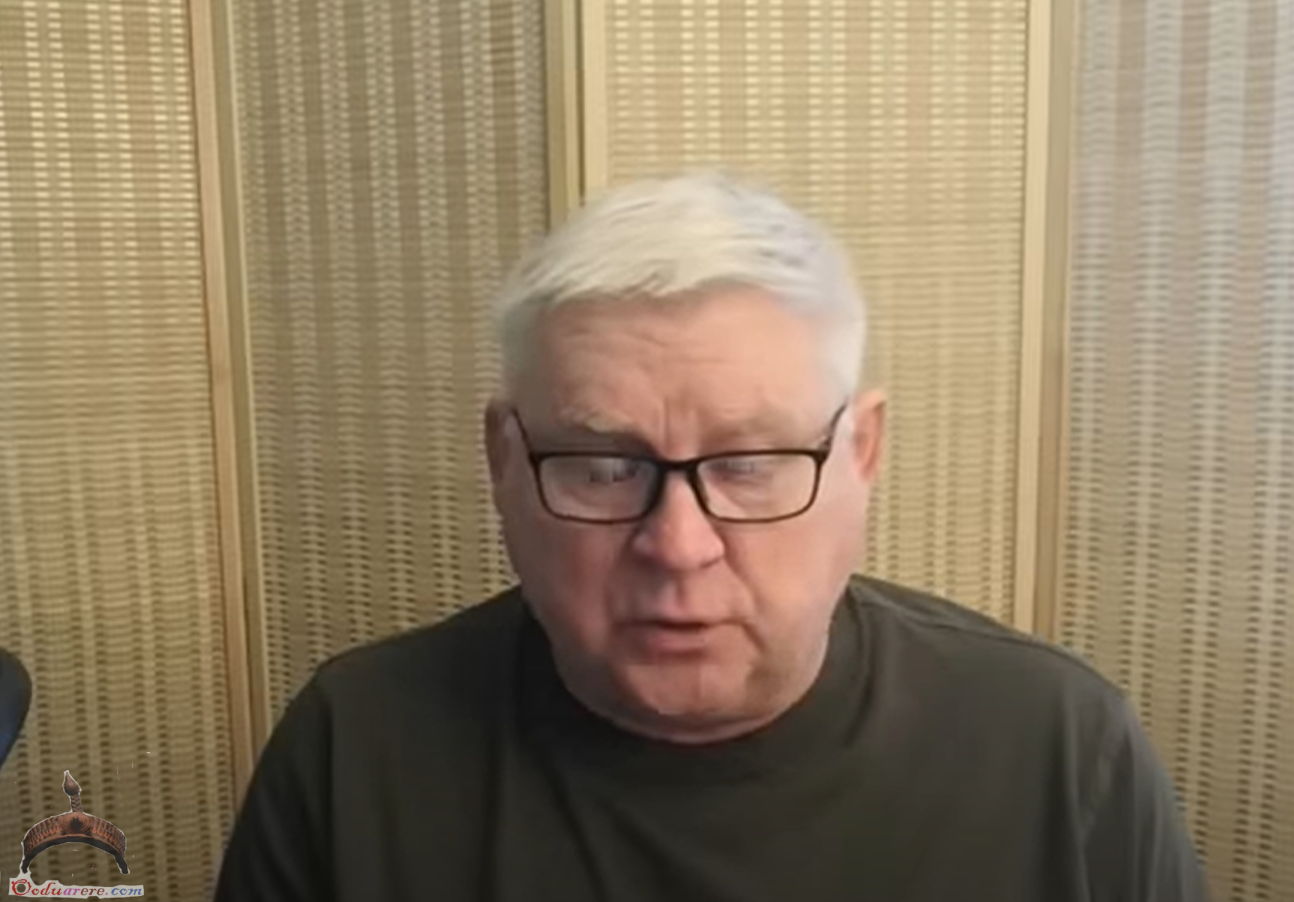By Rostislav Ishchenko
Translated by Ollie Richardson and Angelina Siard
cross posted with http://www.stalkerzone.org/ishchenko-crimea-recognition-trump/
source: https://ukraina.ru/opinion/20180702/1020548537.html
When in Ukraine people fall into hysterics because of Trump’s “we will see” concerning Crimea, it is understandable. The US President publicly stated his intention to reach an agreement with Russia discounting Ukraine and at the expense of Ukraine. The stake on “the whole world is with us” and “The West will help us” failed.
Kiev was left alone, needed by nobody, and there is the intention to use Kiev in order to pay off Russia for the achievement of a compromise.
But Trump still fights so that this compromise is in the US’ interests. He tries to exchange tactical concessions in order to preserve the chances of winning in the strategic game. He wants to give back a part of what was taken from him so that some of what was taken from him will be returned. Moreover, he doesn’t intend to refuse forever what he allegedly gives back, trying to present it in such a way so that it could be possible to again return to the topic under favorable circumstances.
This concerns Crimea directly, that’s why I don’t understand the euphoria that captured the Russian expert and political circles after the notorious statement of Trump.
Trump just stated that under certain conditions the US can recognise Crimea as Russian. But Burkina Faso can also do this under certain conditions. Moreover, the conditions will be one level better. Of course, the US is a superpower, and until recently a global hegemon, and it is difficult to overestimate Washington’s influence on world processes. But the recognition of Crimea as Russian either by America or by the vast majority of existing States won’t change its international legal status.
The only thing that can be counted on is that the US will cancel sanctions for Crimea [the “annexation” – ed]. But they can immediately introduce them again for any other reason or even without a reason, in defiance of the norms and rules of the WTO, and introduce restrictive duties against the goods of the EU (of their ally that it is formally still the closest).
If to consider the concrete status of Crimea as Russian territory, then firstly, while Russia is capable of providing military cover for its claims, the whole world, regardless of what it thinks, will be reconciled with the actual state of affairs. Foreign citizens coming to Crimea will pass through Russian passport control and Russian customs, and nobody will be indignant and demand to show them some Ukrainian border guards. Even hundreds of thousands of citizens of Ukraine quietly every year go to the Russian Crimea, the ownership of which to Russia isn’t recognized neither by neither Kiev, nor by the most part of the world community.
Argentina doesn’t recognise the belonging of the Falkland (Malvinas) Islands to Great Britain, Japan doesn’t recognise the Russian sovereignty over the Southern Kuril ridge, the People’s Republic of China doesn’t recognise the Republic of China on Taiwan. All of this has lasted over decades and doesn’t especially disturb someone, except narrow experts. Nevertheless, sooner or later the problems of contentious territories explode into conflicts, and moreover, it is third parties that benefit from these conflicts.
Today, from the point of view of international law, Crimea has the status of contentious territory. It at the same time is introduced as a region in the constitutions of two States, and both of them (Russia and Ukraine) declare the legality of their right to the peninsula. It is in the interests of Russia to close this question definitively (and the sooner the better).
Within the framework of acting international legislation, such a conflict can’t be settled by an ordinary recognition of the new status of a territory by the majority or even all the countries of the world community. This only creates good prerequisites for its solution, but doesn’t give the solution itself. The whole world agrees that Kurils are Russian. This doesn’t prevent Japan from demanding the islands and the US from playing on these Russian-Japanese contradictions, trying to achieve their military-political domination in the Far East.
Exactly in the same way, the vast majority of the countries of the world agree with the concept of “one China”promoted by Beijing and long ago severed diplomatic relations with Taiwan (having kept economic ties because Beijing doesn’t oppose economic cooperation). This didn’t help China to restore its sovereignty over Taiwan. The only chance that China had (and still has) is if Taipei adopts, on the basis of internal procedures, a decision on unification.
This option is applicable to Crimea too. If one of the sides refuses their claims and Kiev, together with Moscow, will sign a new agreement cementing the new status of Crimea, then the recognition of all the others will be gained automatically because only one applicant-State will remain on this territory.
We understand that today such an option isn’t realistic. Russia not only owns Crimea factually, but also relies on the support of the absolute majority of the population of Crimea. It has no intention to concede control over the peninsula to Ukraine. But Ukraine, which lost Crimea long ago and has no way of returning it peacefully, also doesn’t plan to refuse its theoretical rights. It is in this way that once in Western Europe, after the failure of the crusades and the destruction of the crusader States, dynasties of Jerusalem’s titular kings and even emperors of the Latin empire existed for centuries. Well, and if none of the parties is going to concede, then not only is reaching an agreement possible, but negotiations can’t even begin.
There is the option of legalisation through the International Court. But for this purpose it is necessary for both States challenging the territory to agree to refer the matter of their sovereign rights for the consideration of such a court. In our case this is also impossible. Besides the fact that in recent years the decisions of different kinds of International Courts (including in relation to territorial questions) became strongly politically motivated (which doesn’t promote trust towards the mechanism of this sort any more), Russia in principle can’t allow itself to create a precedent of handing over the destiny of its territorial integrity to a certain external arbitrator. Moscow essentially resolves such issues only by bilateral negotiations, because any intermediary will play for their own interests too.
One more possible option is the decision of the UN Security Council. But it is impossible to achieve unanimity in the Security Council. Someone will veto any possible decision. At the same time the arguments of the parties will turn into a paradox, like a question of the primacy of the chicken or the egg, and allow to justify any position using the norms of international law — either Russian or Ukrainian, depending on who a specific member state of Security Council will decide to support in this dispute.
We will show this by using an example. Ukraine affirms that the referendum on the transition of Crimea to the structure of Russia can’t be recognised as lawful for two reasons:
- From the point of view of the Ukrainian Constitution, only the Verkhovna Rada can declare a referendum on territorial changes and all the population of the State has to take part in it.
- From the point of view of international law, Ukraine lost control over the peninsula, which switched to the hands of Russian troops already before the announcement of a referendum.
Both statements are true, and the pathetic attempts of frequenters of talk shows to declare that “Russian troops were on the peninsula according to an agreement” don’t maintain any criticism. Even, if not to consider the fact of the additional transfer of special operations forces to the peninsula, which was publicly recognised by the president of Russia long ago, then of course the right of Russian troops to be billeted on the peninsula and to work outside the places of their basing, especially to carry out a blockade of Ukrainian garrisons, wasn’t written down in any agreement.
But all of this doesn’t mean that the position of Russia is weaker. Moscow also relies on facts that absolutely correspond to reality and are known to everyone. The position of Russia is that:
- In Kiev there was a coup, and it means that the legitimate authorities disappeared. The president fled under the threat of murder, the government partially fled and was partially not able to fulfil its duties, the parliament made decisions under the barrels of machine guns. In the first days and hours of the euphoria from the successful coup, the putshists themselves didn’t hide it, and then it was too late. I.e., at the time of the Crimean events there weren’t any constitutional, legitimate, and internationally recognised authorities in Ukraine.
- Internationally recognised elections that formally established the activity of constitutional structures in Ukraine happened only at the end of May. It could be possible to challenge the legality of these elections that were carried out by putshists in interests of putshists, at least because many Ukrainian parties weren’t allowed to participate in them, but the Ukrainian political forces didn’t make a complaint to international structures about the legality of elections, and without this external force can’t via its own arbitrariness recognise them as illegal. However, in this entire epic with elections the only fact that matters to us is that by that moment, when Ukraine formally restored the action of its Constitution, Crimea was Russian for already a long time.
Thus, the argument relying on the lack of correspondence between the process of Crimea’s exit and the Ukrainian constitutional procedure is being crushed. At the moment when the transition of Crimea to the structure of Russia was carried out, the Ukrainian Constitution didn’t work, and the constitutional bodies of authority were absent in the country.
- Moreover, in principle Moscow also has one more argument that still hasn’t yet been used, but can be put on the table at any time. Ukraine called its coup a “revolution”, and indeed the old system of power had been almost completely destroyed, and in many respects it still hasn’t been restored. Indeed, Russia acknowledged the legality of Poroshenko’s election and the subsequent early parliamentary re-elections. But, after all, revolution destroys one State and creates another one, between which territorial and ethnic continuity is observed (not always, but mostly), but legal continuity is absent.
I.e., the Ukraine of Yanukovych with Crimea and the Ukraine of Poroshenko without Crimea are two different States, the territories of which generally coincide, but it doesn’t mean that they must coincide completely. Especially as their legal successorship is different. The Ukraine of Yanukovych considered itself as the rightful successor of the Ukrainian Soviet Socialist Republic, and the Ukraine of Poroshenko stems from the roots of the UPR of Petliura and collaborators from OUN/UPA. Neither Petliura nor collaborators from OUN/UPA ever owned Crimea.
As we see, references to a violation of the Ukrainian Constitution are nullified. Moreover, the successorship of Poroshenko’s Ukraine from Yanukovych’s Ukraine raises big doubts. However, we have an internationally legal argument based on the presence on the peninsula of Russian troops, exercising control over it at the time of holding a referendum.
Theoretically this could allow to challenge the result of the referendum, because one of interested parties exercised armed control over the contested territory. But, as we already established, at this moment in Ukraine the Constitution didn’t act and the lawful authorities were destroyed. The Crimeans, who were afraid of the violence of the bandits who seized power, asked Russia for help. It wasn’t imagined that rescuing them in a way other than giving them reliable armed protection was possible. The subsequent actions of the Kiev authorities seriously supported this position, because if the attack on buses with Crimean anti-Maidan near Korsun still can be considered as an “annoying accident” and a “revolutionary excess”, then the war in Donbass was launched according to the decision of the government in Kiev, just like how the government in Kiev organised and approved the massacre in Odessa on May 2nd, 2014. Both decisions were made even before the hypothetical legitimation of the Ukrainian authorities during early presidential elections. Both decisions were made by the “speaker-president” Turchynov, whose dual position alone emphasised the illegality of the Kiev authorities. Finally, these two decisions justified the fears of Crimeans and the correctness of the actions of Russia.
As we see, each of the parties in its position relies on its own reading of international law and prioritises things in their own way.
This is characteristic not only for this case, but also for all disputable issues in world history. Recently, as we remember, the US tried to treat the interrelation between the provisions of the right of nations to self-determination and of States to defend their territorial integrity, as it was favorable to them. That’s why their positions on Kosovo and Bosnia, Abkhazia and South Ossetia, Crimea and Transnistria, Donbass and Karabakh didn’t distinguish themselves by consistency. The US sought to interpret every case as “unique”, not having analogs and not creating precedents.
In this regard Russia didn’t deviate at all from the international practice (and international law has its precedents) of the last decades. Moscow treats this case as being unique, and it defends this position because, proceeding from the position of this same US declared even during the Bosnian crisis, it has not only the right, but also a duty (as a power dominating in the region and as a permanent member of the UN Security Council) to use any means to prevent a humanitarian disaster that is provoked by the inadequate policy of the authorities of a neighboring country (especially if these authorities are illegal). A humanitarian catastrophe really threatened Crimea. This is seen in Donbass.
I will remind that once upon a time (during the period between 1836 and 1848) the US was so worried about defending the right of Texans – who declared their independence from Mexico for self-determination – that it even annexed Texas (without bothering with any referenda there), and then launched war against Mexico and captured another third of its modern territory. And nobody still expects that Washington will return Northern California to Mexico or will recognise the independence of Texas.
That’s why one more (which is, however, doubtful) method of legitimising the status of Crimea by carrying out a repeated referendum under international control is rejected by Russia. After all, nobody guarantees that this same Ukraine will recognise the results of the referendum. But the fact itself of giving consent for the carrying out of a referendum will weaken the international position of Russia, because it will call into question the faultlessness of the 2014 referendum on the basis of which Crimea became part of Russia.
Besides this, the fact itself of the creation of a precedent – on the basis of which the Russian region can lay a claim for independence (or a transition to the structure of other State) by holding a referendum under international control – is unacceptable for Russia, because it limits its sovereign rights and creates a legal mechanism for the external initiation of its territorial disintegration.
Thus, today there is such a situation where the solving of the Crimean problem due to the suicide of the Ukrainian State is more probable than it being solved with the help of one of the recognised international legal mechanisms. Nevertheless, the actual entry of Crimea into the structure of Russia is already accepted and perceived as a given by the international community.
That’s why, taking into account the general deplorable condition of Ukrainian statehood, it is necessary to hope that the international legal method of bringing the legal state of affairs in compliance with the actual state of affairs will be found soon.
 Ọmọ Oòduà Naija Gist | News From Nigeria | Entertainment gist Nigeria|Networking|News.. Visit for Nigeria breaking news , Nigerian Movies , Naija music , Jobs In Nigeria , Naija News , Nollywood, Gist and more
Ọmọ Oòduà Naija Gist | News From Nigeria | Entertainment gist Nigeria|Networking|News.. Visit for Nigeria breaking news , Nigerian Movies , Naija music , Jobs In Nigeria , Naija News , Nollywood, Gist and more









